Oberlin College
Oberlin, OH
Oberlin, OH
Oberlin, OH
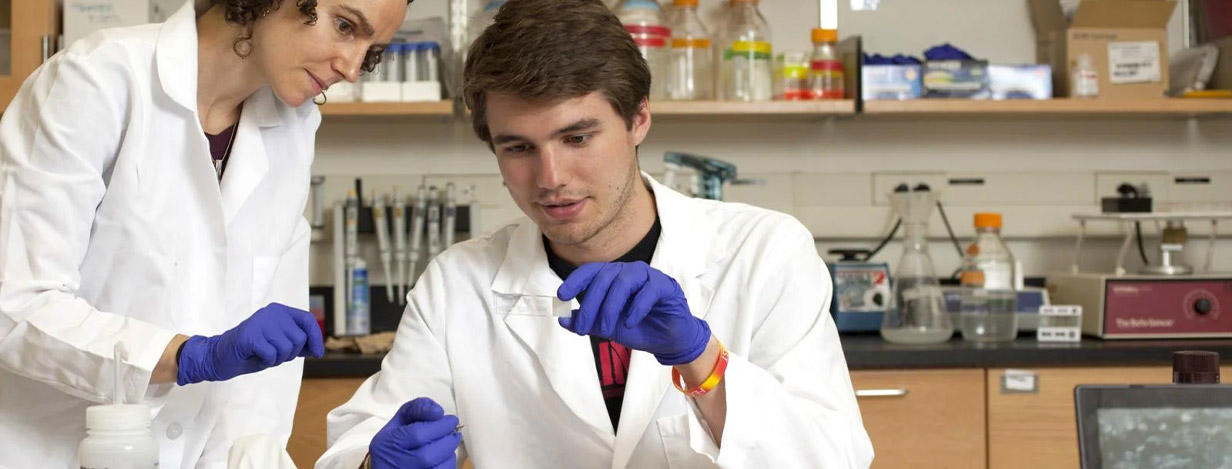
Making a lasting difference in lives and communities
Health Sciences in a liberal arts context
As an Oberlin College student pursuing a career in medicine or health care, you will grow into a lifelong learner who can navigate the science and art of medicine. Health care providers treat their patients as they grow and change, from birth until death. To help, guide, and comfort another person through these moments is an honor that many Obies have chosen as their calling. These intense human interactions call on the broad knowledge, sensitivity, and adaptability developed through liberal arts–integrated training.
Science savvy, humanistic understanding, social context
At Oberlin, you can prepare for a health career with the guidance of a dedicated pre-medical/health advisor and the support of a collaborative community. Prerequisite classes are compatible with your own personal curricular and co-curricular tracks. Musicians, athletes, student leaders, and linguists can merge their passions with an intentional path to a health profession. Developing into your best self will make you the sort of physician that patients connect with.
Biology
Biology is vast, ranging from subcellular and biochemical processes to ecosystems and organized societies. Oberlin students and faculty engage in state-of-the-art methods in biochemistry, molecular biology, computational modeling, and fieldwork. They investigate Darwin’s “Grandeur of Life” from genes to proteins, bacteria to birds, laboratory microcosms to forests, and computer-generated worlds. We prepare students for many post-graduate pathways and careers, including medicine and allied health professions, research, conservation, education, and industries within and outside biotechnology.
Chemistry
From public health and drug discovery to agriculture and nutrition, Chemistry touches everything. Where creation and discovery lead to breakthroughs in medicine, food, materials, energy, and sustainability, the Chemistry and Biochemistry curriculum encompasses all the major fields: organic, biochemistry, analytic, physical, environmental, and inorganic chemistry. Chemistry students work with faculty on cutting-edge research laboratories at the forefront of chemical science, going on to pursue careers in medicine, industry, academia, and beyond.
Cognitive Sciences
Cognitive Science is a multidisciplinary field examining the structures and processes that underlie a creature’s ability to think and reason. They explore such closely related cognitive phenomena as perception, recognition, memory, communication, and consciousness through an integration of perspectives and methodologies from many disciplines, including anthropology, biology, linguistics, and music theory. The goal of this minor is to provide students with an opportunity to engage with the questions, methods, and results of cognitive science.
Global Health
Global health as a practice encompasses issues and challenges of human well-being that transcend national boundaries. Taking a holistic approach to individual and communal health, Oberlin’s concentration in Global Health situates health science within a political, economic, and cultural context. Our curriculum emphasizes understanding health inequities at national and international levels, connecting coursework and research with health equity initiatives.
Neuroscience
Why do we act the way we do? How does aging affect memory? What is the neurobiological basis of addiction? How is sensory information translated into meaningful perceptions? At Oberlin, our Neuroscience faculty explore these questions and more using state-of-the-art methods and technologies. Our students, coming from diverse and often underrepresented backgrounds, gain research and hands-on experiences that prepare them for careers in science, medicine, law, policy, and public health. Students learn computational modeling, cell culture, behavioral analysis, chemogenetics, optogenetics, and human EEG in laboratory classes and during collaborative research with faculty. And frequently collaborative research experiences culminate in travel to professional conferences and publication in scientific journals.
Psychology
Psychology is the scientific study of feelings, thoughts, and behavior. From the study of physiological reactivity to facial recognition to factors influencing social change, The Psychology Department exemplifies Oberlin’s exceptional liberal arts curriculum, bringing together strong training in quantitative skills, critical thinking, and collaborative teamwork. All students do research in the classroom, taking two full semesters of statistics and one or more in applied research. Oberlin’s Psychology majors hone their speaking and writing skills through seminars and collaborative projects and work with faculty and peers to solve problems that make a difference in the real world. Our Department combines strengths in clinical, developmental, social, and cognitive psychology to prepare students for pathways in business, environmental sustainability, law, counseling, medicine, data science, and public health.
In a quintessential college town in the heart of the Midwest, our picturesque location provides both small-town charm and safety. It gives us a lot of room to breathe and the freedom to explore and apply new ideas. Whether on campus, in Oberlin, or nearby Cleveland, you'll find expansive offerings of cultural, social, and service programming.
Every Oberlin experience is a collaborative enterprise between students and faculty. Your faculty mentors are world-renowned scholars, artists, teachers, and citizens who will guide and push you, invested fully in your promise and future. They will challenge you to approach your education with a critical mind and a resilient heart.
Every year since our founding in 1833, Oberlin has helped to cultivate compassionate, rigorous, pragmatic visionaries who go on to make an exceptional impact on the world. Our alumni include 23 National Academy of Sciences members, nine Pulitzer Prize winners, three Nobel Prize recipients, and countless award-winning artists. When our students graduate, they land in the most interesting places doing amazing, life-changing, creative work. Our alumni use their Oberlin educations to give the world more joy, hope, meaning, and justice—serving collectively as a global force for good. In every field, on every stage, Obies help people find the way forward.
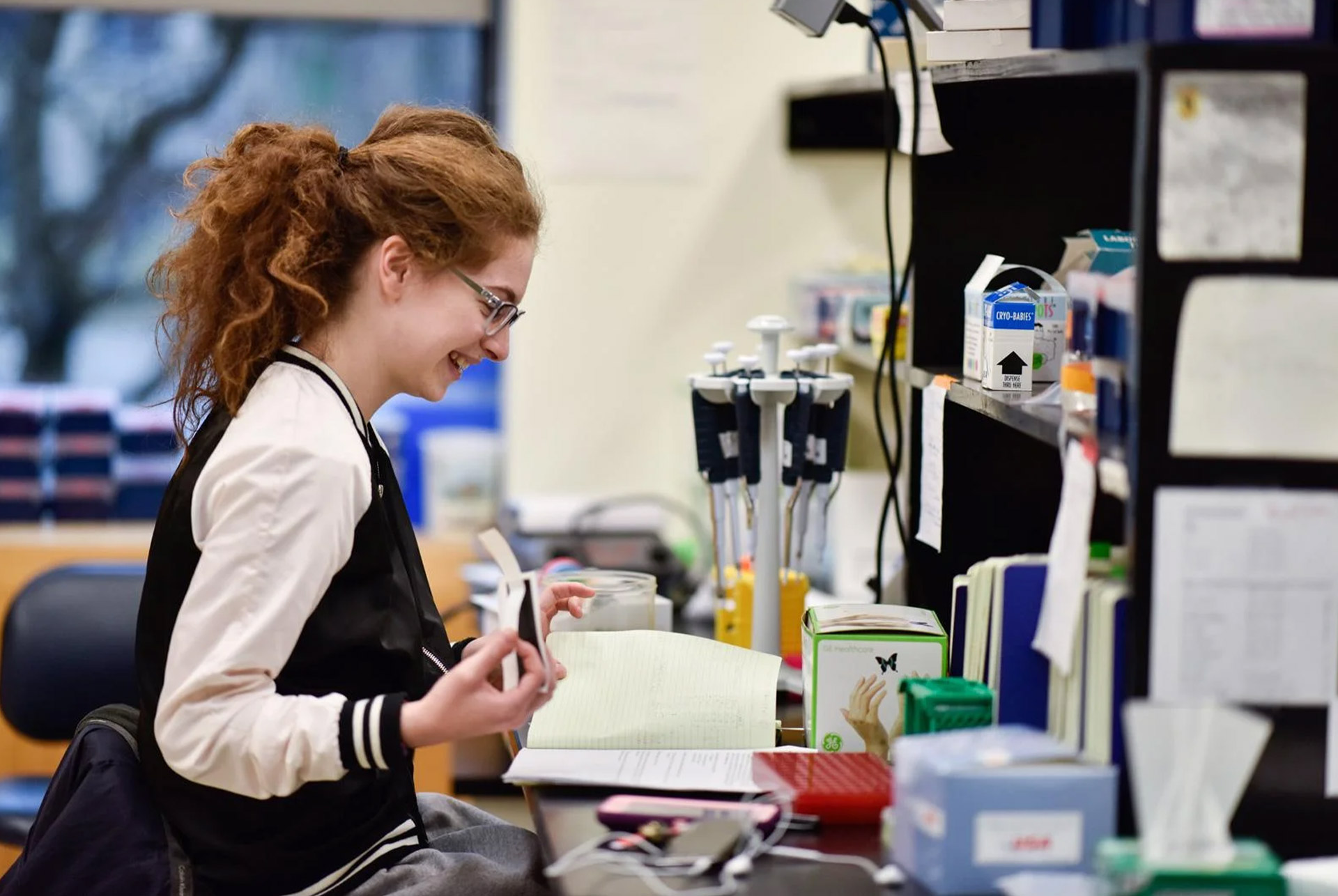
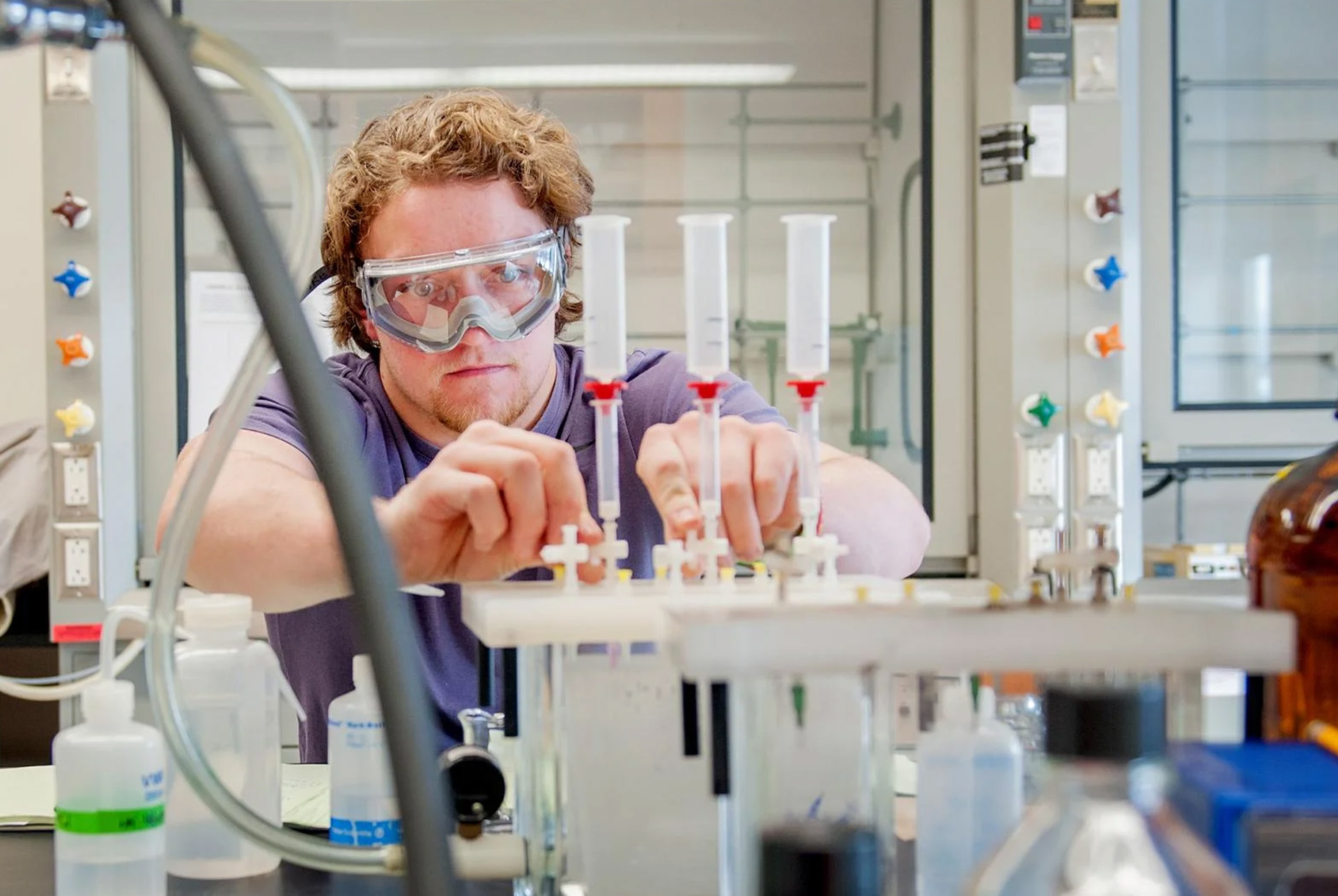
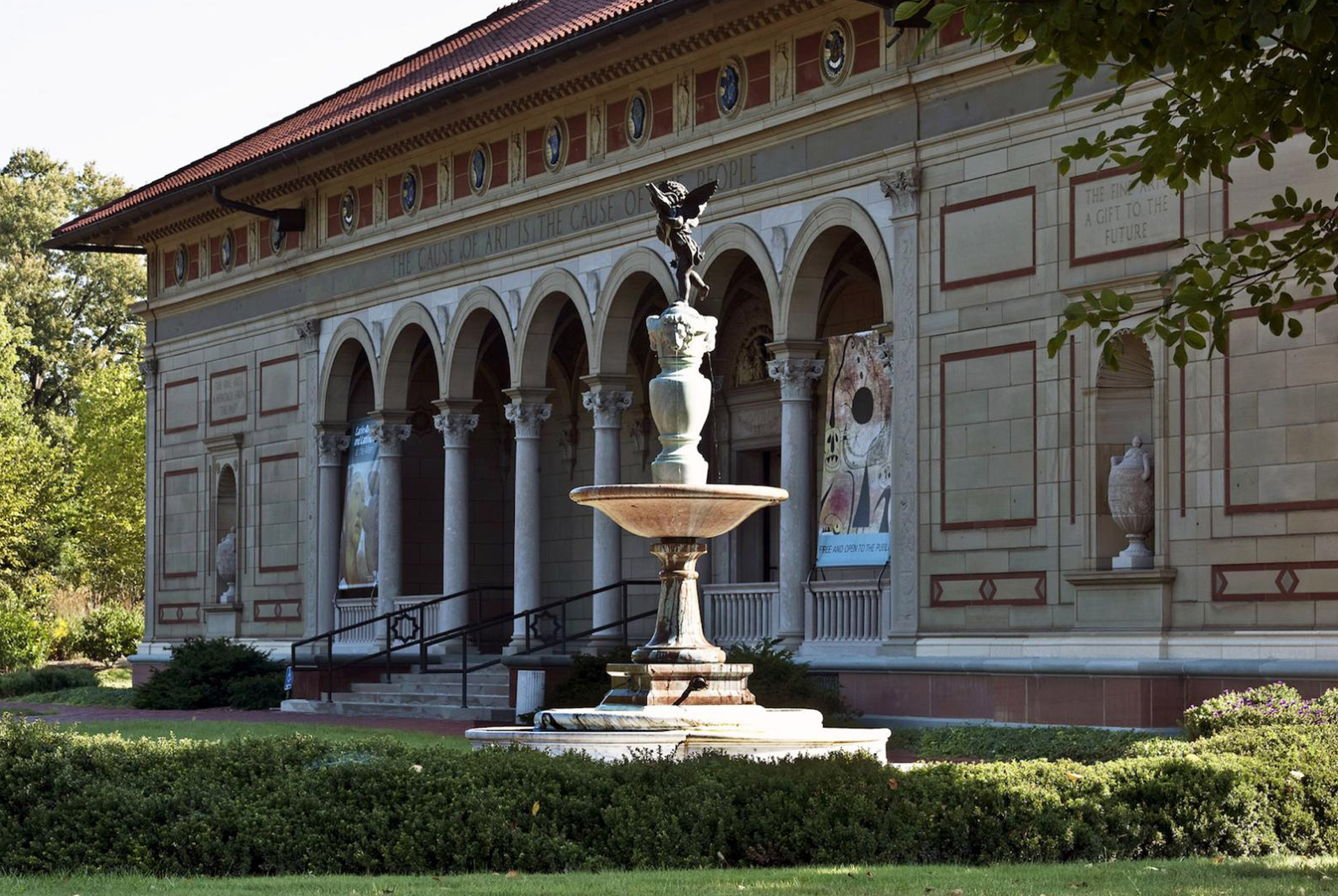
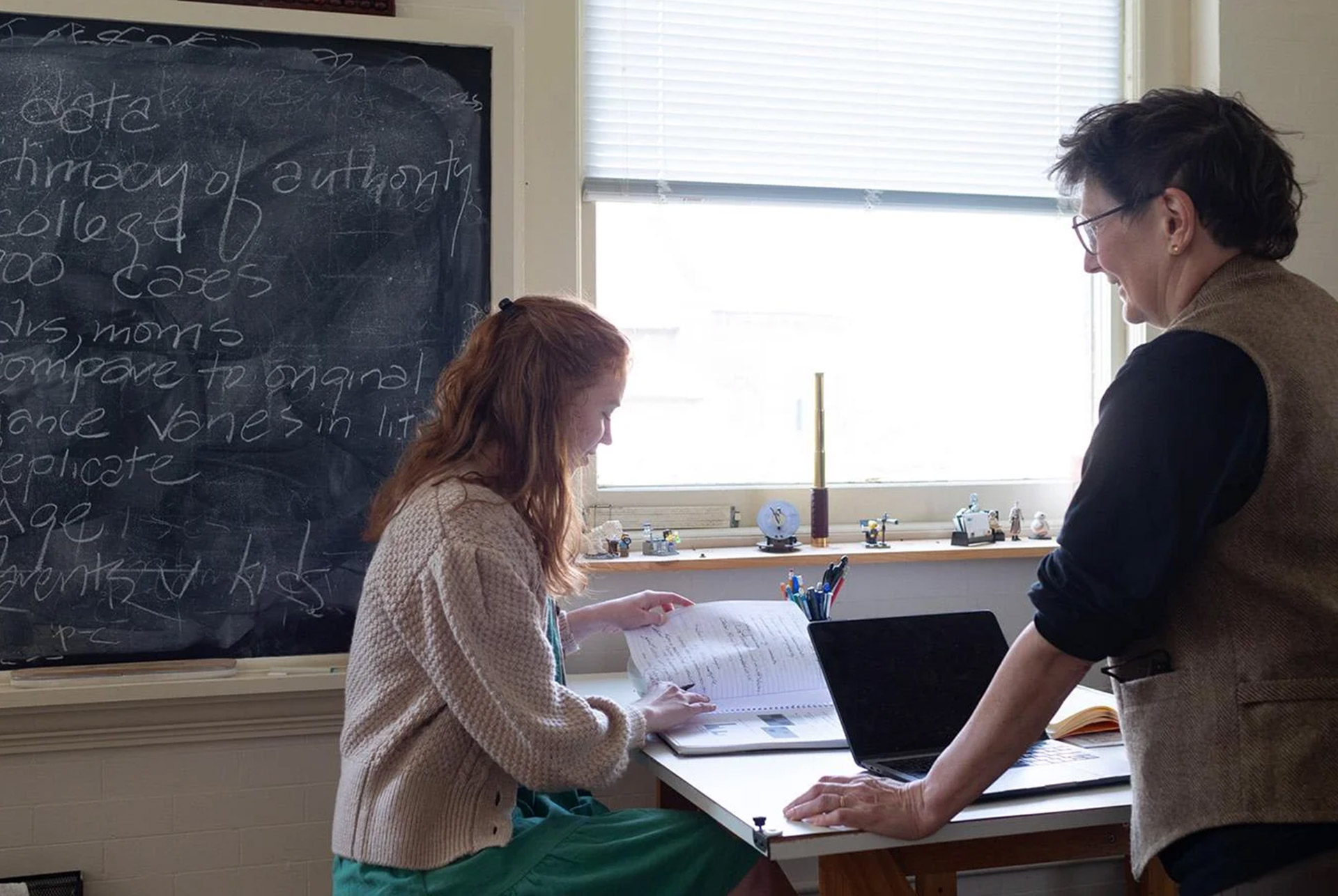
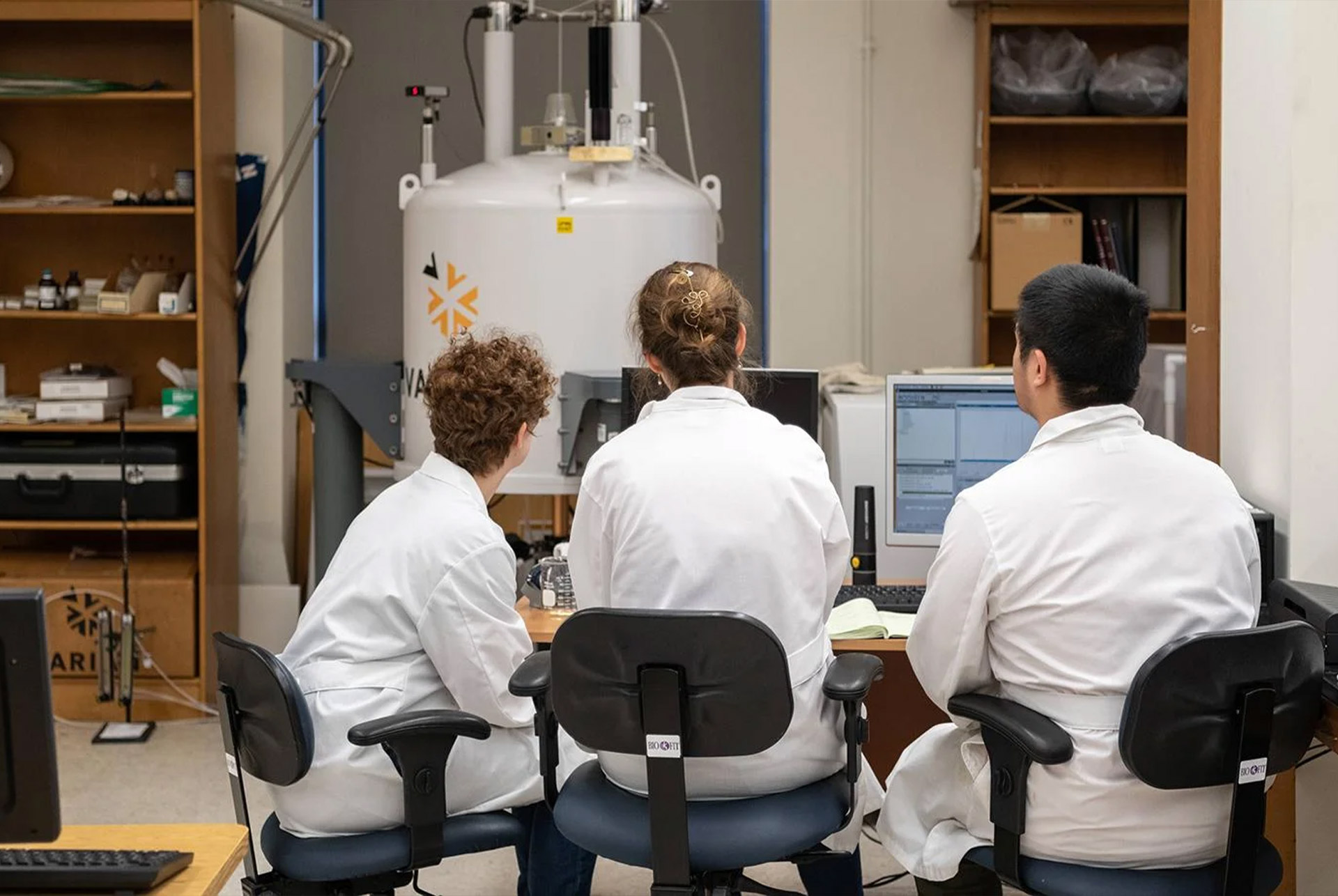
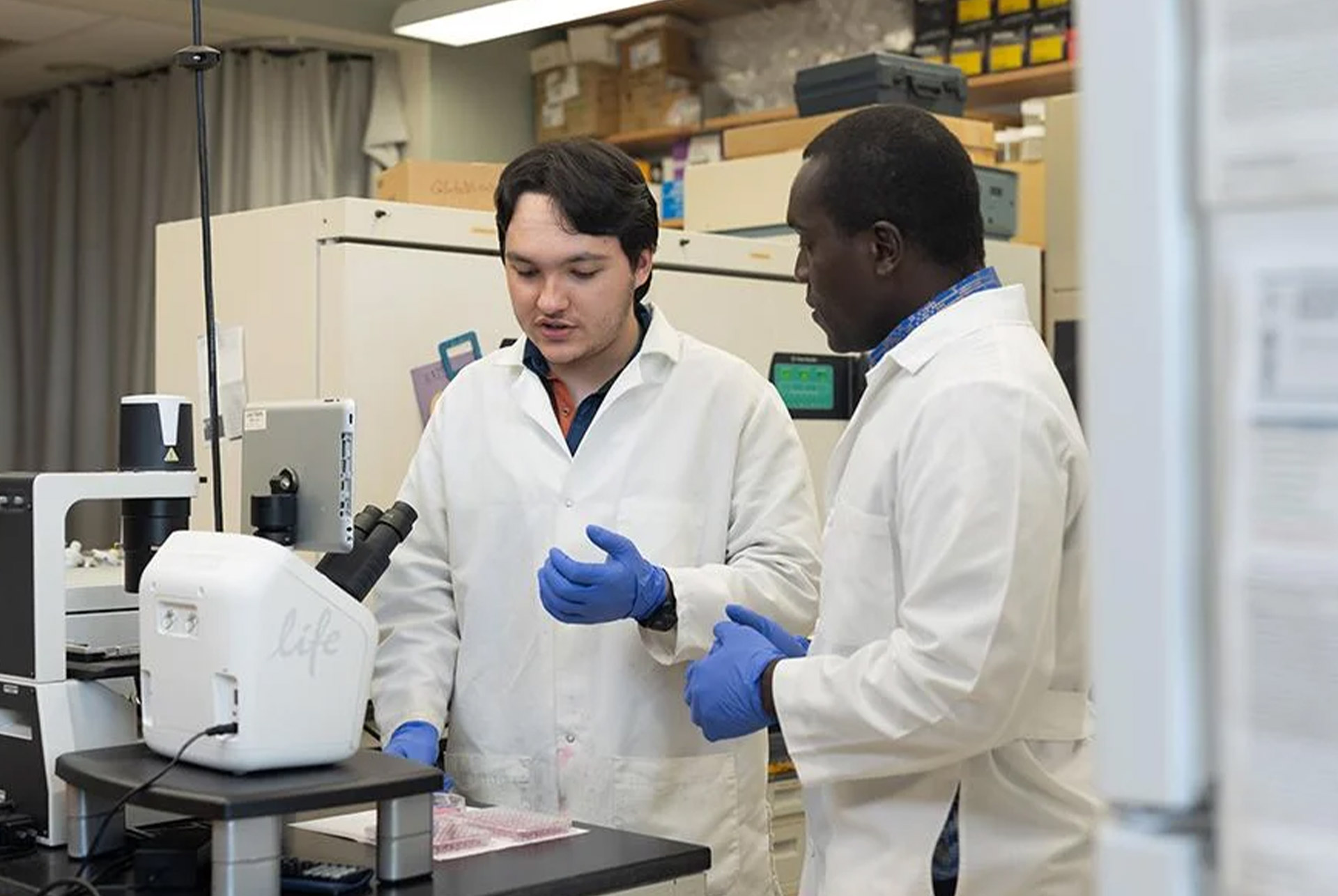
“The immense support of my research mentor, Professor Gunnar Kwakye, and other mentors within the Departments of Chemistry and Neuroscience made my academic and experiential learning at Oberlin exceptional.”
“Not only are my teachers brilliant at what they do, they’re some of the most compassionate and supportive people I know. They’ve offered me invaluable guidance and pushed me in new creative directions that have ultimately made me a better artist and better human being.”